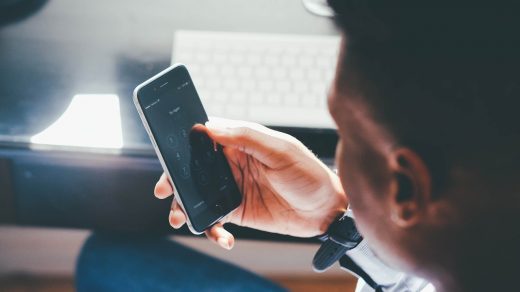I was fully prepared to make my next blog post about Minecraft – I had a whole idea prepared and everything. But then, while having a conversation with my roommate, I found out about r/QAnonCasualties. A place where people with family or friends who have fallen down the rabbit hole of QAnon go to search for ways to rescue them. Apparently, my roommate had stumbled across it a few months ago and spent ages reading the stories and advice people shared. How do you get your grandparents off the wrong side of Facebook? How do you gently persuade your son to at least talk to you again? And then some crazier stories like a woman who was certain her sister caused her father’s death by not wearing a mask while the father was trying to recover from a respiratory disease.
So naturally, I wanted to see it for myself. My roommate didn’t recall the name of the subreddit, but a quick google search got me there in no time. Luckily, I chose the weekend after Thanksgiving to delve into it all and the page was brimming with stories of unfortunate encounters and advice of how to deal with slightly less reasonable family members. Jackpot!
Although it would be extremely interesting to explore how exactly these people become so invested with QAnon and where exactly the brainwashing starts, I was more curious to see how the supposed success stories managed to cut of the brainwashing. I think we’ve had plenty of discussions in class about internet addiction and we’ve all got some basic knowledge on how brainwashing happens – but how can that pattern be broken? And why is it so difficult?
If I were a bit more scientific about this, I’d probably do some more research about how brainwashing works psychologically, but instead I’ll call what I’m doing ‘internet fieldwork’.
Reprogramming the mind
There are a few approaches taken to deal with someone who’s fallen victim to Qanon:
- Argue and try to reason with them
- Abandon hope and try to remove them form your life
- Gently take away their links to the world of QAnon and ‘reprogram’ them
The general consensus on the subreddit regarding option number one is that it is futile, and you’ll only be causing more harm. If you argue against them, they argue back and it seems to only solidify their own beliefs in their mind.
Although the second option seems a pity to resort to, members of the subreddit agree that you should not exhaust yourself and you should protect yourself from these friends or family who can become a danger to your or others around you. Of course, this is extremely hard to do when talking about your spouse, parent, or basically anyone who’s very close to you. And on a larger scale, it’s a shame to let it continue on.
The final option is the one which interests me most – not only because I think it might be the most successful option, but because it really finds the root of the whole brainwashing thing and boils the whole issue down to one thing – algorithms.
It might be a questionable tactic, but some people on the group suggest going on to your loved ones devices and accounts and altering their feed. Unlike and unsubscribe from certain posts on Facebook or channels on YouTube. Cut them off from the source that’s feeding them conspiracy theories. This, of course, is much easier to accomplish when dealing with an older age group who might not even know how their social media works.
Slowly but surely, people who attempted this discovered that within a month or so they felt that they had gotten back the ‘real’ version of their loved one. While before these people seemed to be entirely consumed by their newfound fanaticism, they had now returned to having other interests and topics of conversation.
The PewDiePipeline and other traps
I find it quite interesting that a couple of simple tweaks to your social media accounts can so quickly transform your behavior and how you are perceived by those around you. If I were to enter Instagram one day and block all the topics I usually run into, how different would I become? If I suddenly had an entirely new feed, would my opinions on certain things change and would I develop new characteristics? I know for a fact that my clothing choices are heavily influenced by my social media feed. My music taste as well. Maybe even my sense of humor?
Perhaps I’m not being influenced in a way which is as extreme as QAnon followers, but I’m being influenced nonetheless. And this realization that there is so much of me which is made up from the media I’ve consumed online since I was quite young is a bit jarring. I knew it, in theory, but I’d never given it much thought. I could’ve easily followed a couple of different tumblr blogs when I was fourteen and maybe not been as invested in Star Wars or Taylor Swift (a spectacular combination, by the way), which could’ve maybe drastically changed my interests today.
For example, I once read something which described the ‘PewDiePipeline’ as the algorithm which leads young kids from gaming and Minecraft channels to alt-right channels which promote conspiracy theories, racism and misogyny. If you give it a quick google search, there are a couple of stories or articles out there describing cases where people or people’s kids fell prey to a number of different beliefs (some links below). As someone who played Minecraft in sixth grade, I was probably a click away from the same pattern. And I don’t doubt for a second that I’m in a bit of a trap myself, that my beliefs are very much constructed by the innocent choices I made online years ago and continue to make today.
And as luck would have it, my post made its way back to Minecraft after all!
Some links if you’re curious:
https://www.nytimes.com/interactive/2019/06/08/technology/youtube-radical.html




Very interesting blog and train of thought. Sort of feels like we are slowly becoming this alternate reality// sci-fi version that the media feeds us…one with the machine or the machine telling us what to do…I’ve also stumbled upon several TikToks that mention there being multiple spiritual awakenings these last two years and there being an increasing amount of ‘groups’ or cults that promote this behaviour through people’s soc.media algorithms.
I’m sure you’ve seen/been on with TikTok or insta, or perhaps have noticed this growing fascination with crystals throughout soc.media? I think that there are also potential dangers in promoting that sort of behaviour as some of these practices are promoted to unskilled/untrained/naive children or young people, whom these practices can harm (mentally and physically). Perhaps this is another example of what you were talking aboutt in your blog! 🙂
I’ve only seen a little bit of the crystals so I didn’t realize the extent of it, but that just goes to show how different everyone’s feed is! I have seen other similar things about lucid dreaming which also has a cult-like feeling to it. It’s definitely interesting to see what the primary age group is for these things and how so often it tends to be younger kids. These are definitely great example of what I was getting at!
Thank you for sharing this blog post! It’s really interesting to see how people approach loved ones who believe in QAnon and indeed it’s scary that so much of our personality and beliefs can be based on our social media feeds.
As you say, theoretically we know we’re influenced by what we see, but it’s interesting to ask the question ‘how much control do we have over it?’
I think it’s a good thing to sometimes question what/who we follow and it’s interesting that you play with the thought of whether we’d change if we suddenly followed a totally new set of profiles.
Also, the PewDiePie pipeline reminds me of what happened to the son in the movie The Social Dilemma!
I haven’t seen the Social Dilemma yet but I definitely will!
I’m definitely considering making an entirely new profile and following different things to see if I notice any changes, could be an interesting experiment 🙂
Perihaan, unfortunate you could not make it to the seminar. We had a thorough discussion on your blog post! 😊
I do agree that media we consume can easily influence our behaviour and therefore, the way others perceive us too. This is the reason why I quit Facebook (or Meta) seven months ago. In the beginning, I was craving my ‘sweet old rabbit hole’ but now that I think of it, it was one of the best decisions.
Thank you for sharing!
Such an interesting read! I’d have to admit that growing up, much of my personality has been shaped by the Internet.
The concept of pipelines is so bizarre to me. When I first used TikToks, I came across a lot of people sharing their experience of going through a One Direction phase, then an emo phase, and finally, a K-Pop phase. As someone who went through all of those phases in that order, I thought to myself: “Is there any part of myself that’s original at all?” Now that I know more about digital media, I wonder how much of the algorithm is responsible for creating these formulas for our life experiences.
Perihaan, thank you so much for this post! It’s as interesting as it’s disturbing. It’s scary to think how much control the Internet has over us, and how it defines our choices and perspectives. I noticed so many times already, that lots of posts I had been seeing, especially on Facebook (one of the reasons I don’t really use it anymore) were getting more and more extreme. And I totally agree with you that all the clicks we did in the past probably do have an impact on who we are right now and that lots of us followed a very similar pattern when it comes to social media and algorithms. This also scares me a bit when I think, that all these kids explore the web rather innocently and are being shaped by all their clicks.